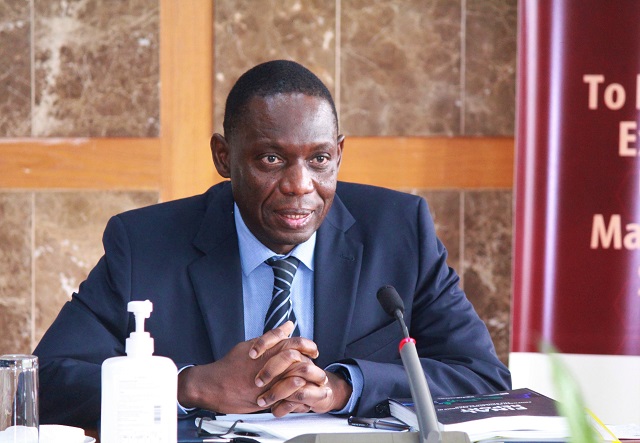
Kampala, Uganda | THE INDEPENDENT | Bank of Uganda has decided not to further tighten money circulation in the economy by maintaining the Central Bank Rate at 10 percent.
This decision by the Monetary Policy Committee was based on the fact that inflation is starting to slow down from the records registered last year and earlier this year.
According to the Uganda Bureau of Standards, annual headline inflation dropped to 9.0 percent in March 2023 from 9.2% percent in February, having touched 10.7 percent in October 2022.
The inflation was largely due to high prices of imports especially fuel, as well as a high in local food prices, making worse the economic slowdown of the previous two years from which the country was trying to recover.
However, BOU says the economy has broadly evolved in line with their expectations made at the February 2023 MPC meeting.
The BOU attributes the decline in inflation to a fall in international commodity prices, improved global supply chains, and relative exchange rate stability due to tight monetary and fiscal policies.
“Although the shilling has weakened marginally against the US dollar since the beginning of the year, in part due to seasonal factors, it has strengthened when compared to the currencies of Uganda’s major trading partners,” says Deputy Governor, Michael Atingi-Ego.
He is however worried about the move by the oil-producing cartel (OPEC) and Russia to cut production and force the prices up, which could cause fresh inflation if the prices rise.
OPEC and its allies like Russia agreed on Sunday to increase crude oil production cuts to 3.66 million barrels per day, a 3.7 percent of global demand as they sought to tame the fall in prices.
The factors favoring the continued decline of inflation are lower energy prices, improved global supply chains, lower food crop prices due to favorable weather, the existing spare capacity in the economy, and the exchange rate stability owing to tight monetary and fiscal policies.
The government’s restrictive policies on the economy also dampened demand thereby limiting inflationary pressures.
However, this also put the economy on a sounder long-term footing by reducing public debt and investing in infrastructure, according to the bank’s statement.
Atingi-Ego says the global economic slowdown as well as a reduction in geopolitical tensions, and stability in the global financial that could ease external financing, will help suppress inflation and boost growth.
Dr Adam Mugume, BOU Executive Director of Research also dispelled fears of the global recession and its effects on the Ugandan economy, though there is a slowdown.
The economic growth of Uganda is expected to remain on a recovery path, averaging 6.8 percent in the first two quarters of this financial year, supported by a stronger recovery in services and agriculture output.
However, the economic growth for the second quarter of this year (October to December) dropped to 4.4 percent from 9.2 percent for the previous quarter, due to a decline in industrial output and stagnant growth in services output growth.
“The moderation in growth partly reflects the tight monetary and fiscal policies, as the increase in domestic interest rates and tight credit standards by banks affected the growth in private sector credit,” says Dr. Atingi-Ego.
The monetary policy committee of BOU projects economic growth to be between 5.5 and 6.0 percent this year, remaining below its long-term trend until the 2025/26 financial year, partly because of the tight domestic and external financial conditions.
Moreover, growing external financing needs are expected to put pressure on the shilling. Other downside risks to economic growth, according to BOU include lower-than-expected global growth affecting the demand for exports.
A combination of uncertainty, higher interest rates, cost-of-living pressures, and government fiscal consolidation, though necessary, could weigh heavily on household consumption and private sector investment decisions, according to BOU.
Other risks cited are unfavorable weather conditions that could affect agricultural production, and also a possible disruption of the global supply chain due to geo-political tensions.
In March this year, economic rating company, Fitch Ratings revised the Outlook on Uganda’s Long-Term foreign debt situation to Negative from Stable.
However, it affirmed the overall country rating at B+, which the Deputy Governor said was a plus for the country’s economy and international image.
On the downward debt burden outlook by Fitch, Atingi-Ego says it shows that the country is getting nearer a risky position regarding the debt burden which recently surpassed the 50 percent ratio to GDP.
He says that this is because the government had increased borrowing on commercial terms as concessional loan sources dwindled.
According to him, this is being addressed by the government.
*****
URN
 The Independent Uganda: You get the Truth we Pay the Price
The Independent Uganda: You get the Truth we Pay the Price



